Daniel Fischlin
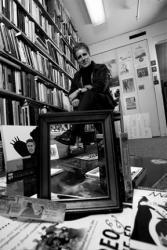
Short Biography
Daniel Fischlin is Professor in the School of English and Theatre Studies at the University of Guelph. Founder and Director of the influential Canadian Adaptations of Shakespeare Project, he is also the General Editor of the Shakespeare Made in Canada series (Oxford UP/Rock’s Mills Press). One of Canada’s most prominent early modernists, his work on the Sanders Portrait of William Shakespeare, “Revealing Identities,” was chosen as one of the five discoveries (and the only arts and humanities discovery) among 50 innovations from Ontario universities over the last 100 years by the Council of Ontario Universities’ (COU’s) Research Matters Campaign. He remains the only Arts and Humanities researcher to have won an Ontario Premier’s Research Excellence Award.
Fischlin has produced important cross-disciplinary work, including some thirty books with a wide variety of international presses. Recent books include Sound Changes: Improvisation and Transcultural Difference (University of Michigan Press) and Playing For Keeps: Improvisation in the Aftermath (Duke University Press), both with Eric Porter; Outerspeares: Shakespeare, Intermedia, and the Limits of Adaptation (University of Toronto Press); The Fierce Urgency of Now: Improvisation, Rights, and the Ethics of Cocreation (with Ajay Heble and George Lipsitz; Duke University Press) and a co-authored book with Martha Nandorfy entitled The Community of Rights • The Rights of Community (Oxford University Press), the third in a trilogy of books co-written with Dr. Nandorfy on rights issues. He is the General Editor of Duke University Press's series on Improvisation, Community, and Social Practice. Fischlin has also received several major awards for teaching excellence including the Ontario Confederation of University Faculty Associations Teaching Award. As a musician and community organizer, he is former Chair of the Board of Silence, a community artspace in Guelph he co-founded––and currently serves as its Artistic Director. Fischlin is also the founding director and lead conceptor of the newly launched MA/PhD graduate program in Critical Studies in Improvisation at the University of Guelph.
Description
An early modern literary and music scholar, Dr. Fischlin has made impressive contributions to both fields, as well as having written a number of books on rights issues. He has co-edited two books on the socio-political implications of improvised creative musics with Dr. Ajay Heble, project director of the MCRI research project, "Improvisation, Community, and Social Practice." These are: The Other Side of Nowhere: Jazz, Improvisation, and Communities in Dialogue and Rebel Musics: Human Rights, Resistant Sounds, and the Politics of Music Making. He has also published two other books that study the relations between music and literary texts and music, nationalism, and gender and has published 13 books with several forthcoming across a range of disciplines including human rights, literary theory and biography, Latin American studies, and Jacobean studies. University presses with whom he has published include Oxford University Press, Columbia University Press, Duke University Press, Wesleyan University Press, University of Toronto Press, and Wayne State University Press.
Fischlin's most recent books, co-authored with Dr. Martha Nandorfy, includeThe Concise Guide to Global Human Rights (Oxford University Press and Black Rose Books, 2007), and sequel to that book entitled The Community of Rights / The Rights of Community (also with Oxford University Press and Black Rose Books). These latter two books are part of the "Rights Trilogy,' co-authored with Dr. Nandorfy, which focuses on rights theory from the perspective of storytelling, principles of earth democracy, and a critique of conventional discourses of rights that exclude the environment.
The first book in the trilogy, Eduardo Galeano: Through the Looking Glass is the first full-length, critical study of the great Uruguayan writer Eduardo Galeano, author of the monumental trilogy Memory of Fire, and of the ground-breaking political critique Open Veins of Latin America. Part political biography, part cultural theory, Fischlin's and Nandorfy's book examines events that shaped Galeano's life through the lens of the rights implications embedded in the stories he tells—from his close personal friendship with Allende, through the dictatorships in Uruguay and Argentina that forced him into exile, to the ongoing relationship between Galeano and Subcomandante Marcos, leader of the Chiapas rebellion. For a 2011 interview about The Community of Rights • The Rights of Community with Fischlin and his co-author Martha Nandorfy, click here.
Recently published with Duke University Press is another co-authored book (with Ajay Heble and George Lipsitz) that addresses rights issues in relation to improvisation and musical discourses associated with jazz: The Fierce Urgency of Now: Improvisation, Rights, and the Ethics of Co-creation. Fischlin is the General Editor of the Duke University Press book series entitled Improvisation, Community, and Social Practice featuring books written as part of the research outcomes associated with the MCRI project of the same name.
Dr. Fischlin’s specialty is early modern Renaissance studies and his experience teaching Shakespeare has led to a number of projects including Adaptations of Shakespeare: A Critical Anthology of Plays from the 17th Century to the Present, co-edited with Mark Fortier, published in 2000 by Routledge. Additionally he is the founder and director of the Canadian Adaptations of Shakespeare Project (CASP), the largest online resource in the world for the study of Shakespeare’s relation to a set of national theatrical practices. The website was launched in 2004 with Version 2 of the site launched in August of 2007 with substantial new content. For an interview with Fischlin about his work on CASP, "Parallel Streams," click here.
In early 2009 the Shakespeare Made in Canada Virtual Exhibit, which houses a multitude of resources (film, photographs, and other multimedia) that document the relationship between Canadian culture and Shakespeare. Fischlin has extensive experience in humanities computing design and innovation and has been instrumental in rethinking the way in which the web is conceived as a place where substantive content can be presented in unique multimedia virtual spaces.
Among others, he has been conceptor and lead designer on a number of innovative online projects including literacy games for youth, interactive readers, content-based site design, and most recently the Romeo + Juliet app. released in 2011 on the Apple iOS platform for iPhone, iPad, and iPod. Fischlin was the lead designer/conceptor/producer of ‘Speare—an online 3D video game for youth that teaches Shakespearean literacy, launched in April 2007. And he was the conceptor behind the online literacy game Chronos, launched in the fall of 2008 on the CASP site. Fischlin also played a key role in the 2008 film Battle of Wills by Anne Henderson, documenting the steps taken to authenticate the Sanders Portrait of Shakespeare. Since then he has been especially active in the research documenting the remarkable genealogy associated with the Sanders Portrait.
Dr. Fischlin is also the General Series Editor for Oxford University Press's unique re-edition of the Shakespeare plays (Shakespeare Made in Canada) from a specifically Canadian point of view, featuring prominent Canadian scholars and authors. The first two editions in the series, The Tempest and Romeo and Juliet, will be publishedin September 2013.
Dr. Fischlin earned a BFA in Music Performance, an MA in Interdisciplinary Studies (Musicology/English Literature; Concordia University), and a PhD in English Literature (York University) with a dissertation directed by Dr. Richard Hillman. He has held a number of SSHRC Standard Research Grants and is the only arts scholar in Ontario ever to have won a Premier’s Research Excellence Award. Additionally he has played a key role in the MCRI Research Project Improvisation, Community and Social Practice (ICASP), serving as a core member of the research team, General Editor (ongoing) for the eight-book series with Duke University Press (mentioned above), Management Team member, Co-Investigator, and the Guelph Site Co-Coordinator (ongoing). Fischlin is also the General Editor for the Oxford University Press series of Shakespeare editions focusing on "Shakespeare Made in Canada," with the first two editions to be published in 2013.
Fischlin is active as a musician and has recorded most recently with the Vertical Squirrels, an instant composition, free improvisation collective he co-founded with Ajay Heble, Lewis Melville, and Rob Wallace. For a more complete biography relating to Fischlin's musical activities click here. The band's first CD, Hold True (Accroche-toi!) was released on the venerable Montreal-based label Ambiances Magnétiques.
Dr. Fischlin has won a number of teaching awards including:
• the OCUFA (Ontario Confederation of University Faculty Associations) Distinguished Teaching Award;
•the University of Guelph Faculty Association (UGFA) Distinguished Professor Award for Teaching;
• and the University of Guelph College of Arts Teaching Excellence Award.
He has also been named among Guelph’s most popular professors in Maclean’s magazine and has twice (in 2004 and 2006) been awarded the Presidential Distinguished Professor Award for his research.
With regard to teaching Fischlin states:
I don’t compartmentalize teaching into any sort of singular detached experience unique to the university site. I see teaching as a chance for reciprocal learning (i.e. I go in to the class room expecting to learn through a process of dialogue and mutual respect), and I see it as an expression of respect for otherness/alterity … a chance to promote careful listening (on both the professor’s and the student’s parts), and I see teaching as a challenge confronted by all the participants in the process to re-interpret the very nature of the process itself. Teaching involves a special kind of ongoing commitment to self-examination (and the questions and doubts raised by that self-examination) and I see teaching as an important part of creating, questioning, and producing community. Teaching is about being in the world in a way that makes small differences (sorry if this sounds really utopian––but I have always believed this)––with the hope that the small differences go on to become something much more. It’s also about being passionate in the desire to communicate––enthusiastic in the production and reception of the ideas that get unpacked in and out of the classroom. So I try to be innovative by creating an atmosphere of mutual respect and a sense of inclusiveness (call it demystification); a sense of respect for the material or at the very least for how the material gets interrogated; I’ve tried for alternative evaluation methods (allowing creative work in supposedly academic contexts; student-designed evaluations; a sense of flexibility with regard to reshaping more traditional forms of evaluation; the use of commonplace books, and so forth); I very much believe in the importance of inclusivity with regard to materials taught (this means being open to a wide range of methodologies, theories, counter-discourses, traditionally marginalized approaches and texts); I believe in interdisciplinarity with a healthy respect for the kinds of learning required to undertake interdisciplinary work; I’m especially stuck on the importance of bridging gaps between archival and theoretical approaches; and I encourage students to understand writing as a process––something that is not a one-off experience for a mark but rather an important part of negotiating the ongoing relationship between self and language (i.e. something one does all the time with varying degrees of success and self-consciousness).
Research
Some comments on Professor Fischlin’s books and essays …
• The Fierce Urgency of Now: Improvisation, Rights, and the Ethics of Co-Creation
Tricia Rose, Professor, Brown University, and author of The Hip Hop Wars: What We Talk About When We Talk About Hip Hop—and Why It Matters
"The Fierce Urgency of Now is a groundbreaking and, in many instances, breathtaking book. Its focus on the ways that musicians from many backgrounds and genres think about and enact improvisation as linked to issues of human rights, community, and freedom is innovative; and the argument that human rights are expanded and valuably reconceptualized by improvisational practices is even more inventive and generative. This book should be read by scholars and students working on social justice and the political, social, and visionary importance of expressive cultures all over the world."
• The Community of Rights / The Rights of Community
Roger Clark (former Secretary General, Amnesty International)
“Those of us who have been engaged in human rights work for many years should pay close attention to this excellent book. It challenges the ways in which we have become accustomed to thinking about rights. It also provides a framework for a radically new approach to the concept of rights in the local & global environments of which we humans are but one element among many. The book is a major contribution to a new discourse on the notion of rights in relation to community. It describes the ecology of rights that are fundamental to the living, complex organisms of authentic community existence. It is also about survival in the world of today & tomorrow.”
Vandana Shiva (Author of Earth Democracy and Soil Not Oil, 1993 winner of the Right Livelihood Award)
“Divide and rule has been the strategy for domination. And humans have been divided and separated both from the earth community and our local, living communities that sustain us, in order to privatise and enclose the earth and her resources. Reclaiming our community identity is vital to reclaiming the commons. And reclaiming the commons is central to Earth Democracy. This important book on the recovery of community rights shows how we lost our collective freedoms and how we can reclaim them.”
Upendra Baxi (Author of The Future of Human Rights and Human Rights In A Posthuman World: Critical Essays and former Vice-Chancellor at the University of Delhi)
“Stunning.”
Jeremy Webber (Canada Research Chair in Law and Society and Author of Reimagining Canada: Language, Culture, Community, and the Canadian Constitution)
“If you are concerned with the limits that afflict discussions of rights, if you believe that rights are about the quality of our communities, and if you think that communities need to be tested and nurtured in order to foster encounter, openness to difference, and environmental sustainability, then this is the book for you. It is a book to be read, pondered, engaged with, and treasured.”
• Shakespeare in Canada: “a world elsewhere”
Ian Munro (Review / Comptes rendus in Renaissance and Reformation / Renaissance et Réforme)
“ … Section Four, “Reimagining Shakespeare,” […] features a series of articles that display a complex theorization of Canadian issues. The highlight here (perhaps of the whole volume) is Daniel Fischlin’s essay, which explores how Canadian theatrical adaptations of Shakespeare puncture the reductive idea of nation as imagined community.”
• The Work of Opera: Genre, Nationhood, and Sexual Difference
Terry Castle (Author of Noel Coward & Radclyffe Hall: Kindred Spirits)
“Taking as its focus the relation between opera and nationalism, art and the state, Richard Dellamora and Daniel Fischlin’s The Work of Opera manages to be state of the art: a scintillating collective exploration, by some of the premier opera writers of the day, of opera’s mercurial role in political life past and present. The essays are by turns elegant, entertaining, and intellectually bracing: ardent in both their commitment to and critique of the most seductive of art forms”
Philip Brett (Compiler of Benjamin Britten: Peter Grimes and co-editor of Queering the Pitch and Cruising the Performative)
“The commerce between ‘new musicology,’ literary criticism, and feminist and queer theory is producing a new kind of opera criticism. Ranging in topic from Jesuit manifesto ‘musicals’ of the seventeenth century to Jarman’s ‘operatic’ film of Britten’s War Requiem, this extensive collection offers as sumptuously queer a view of opera and its involvement with nationality and sexuality as could be imagined.”
Wendy Bashant (Dean of New Students at the New College of Florida; author of the essay, “Singing in Greek Drag: Gluck, Berlioz, and George Eliot”)
“These essays move swiftly, expanding our sense of the sexual (and the operatic) beyond gender, showing how the political and aesthetic are conjoined not just in body but in social communities and nationhood. This superb collection erases as many boundaries as it scrutinizes: it will please musicologists, literary and cultural critics, opera aficionados, gay, lesbian, and straight.”
• Royal Subjects: Essays on the Writings of James VI and I
Jenny Wormald (Honorary Fellow in Scottish History at the University of Edinburgh; author of Mary Queen of Scots: a Study in Failure and editor and contributor to The Oxford Illustrated History of Scotland; professor Oxford University)
“This is an absolutely splendid book. For far too long, the amazing literary output of James VI and I has been regarded, at best, as interesting for its political theory and views on kingship; at worst, as worth noting not for its intrinsic value but because a king put pen to paper. Fischlin and Fortier have put together a collection which at last does its subject justice, and are to be congratulated on doing so.”
• Rebel Musics: Human Rights, Resistant Sounds, and the Politics of Music Making
Howard Zinn (Author of A People’s History of the United States)
“A rich collection of ideas and information about music that inspires, delights, and educates at the same time. It is especially welcome at a time when people doing music are called upon by world events to walk out of the stage and do the unexpected.”
Ingrid Monson (Quincy Jones Professor of African American Music at Harvard University)
“A complex and thought-provoking set of essays, which address politics, human rights, and resistance in music of a global scale. Not content with naïve understandings of politics and activism, Rebel Musics encourages us to dig deeply and confront the contradictions, power imbalances, and ethical questions constantly circulating through sound and social practice. Read this!”
Chris Gibson (Professor at the University of New South Wales)
“An important new collection, Fischlin and Heble’s Rebel Musics for the first time brings together the fields of politics, popular music, and human rights. Diverse and challenging, celebratory but refreshingly realistic, I strongly recommend Rebel Musics to all those interested in music and its political possibilities.”
• The Concise Guide to Global Human Rights
Roger Clark (Former Secretary General, Amnesty International)
“In a world facing the growing challenges of globalized apartheid and pandemic poverty, human rights will determine the future of every one of us and our sustainability as a species. This book allows us to reclaim our hope in that future.”
Micheline Ishay (Author of The History of Human Rights; Professor and Director of the International Human Rights Program, University of Denver)
“The Concise Guide to Global and Human Rights is an excellent road map for navigating the labryinthian challenges posed by globalization. It should be used by human rights activists and students alike.”
Upendra Baxi (Author of The Future of Human Rights and Human Rights In A Posthuman World: Critical Essays and former Vice-Chancellor at the University of Delhi)
“This concise guide to global human rights…reminds us, with Mahatma Ghandi, that only the power of emotional intelligence embodied in heroic…resistance may help transform the law from being the convenience of the powerful into a platform and portal for collective human action for global justice…This eloquent call for the future of human rights and a just world order is a must read.”
• The Other Side of Nowhere: Jazz, Improvisation, and Communities in Dialogue
Alan Rice (Review in Journal of American Studies)
"Academic theorizing about jazz has traditionally lagged far behind the inspired playing of it with the field of jazz writing dominated by magazine journalists and social commentators. This has often been a relief, making the literature of jazz unburdened by the obfusacatory language and petty point-scoring of the academic establishment. Since 1990 some excellent jazz academicians have emerged such as Krin Gabbard, Graham Lock, Ingrid Monson, Nathaniel Mackey, Paul Berliner, and George E. Lewis, who incorporate the best of the jazz writing tradition whilst riffing a new discourse using the resources of cultural theory. Some of them are represented here in this excellent comprehensive collection of writings about the politics and aesthetics of improvisation."
Graham Lock (Author of Blutopia and Forces in Motion)
“This is an impressively wide-ranging collection that is sure to engage and provoke. Fischlin and Heble have elicited valuable insights about improvisation and its complex relationship with the histories of race, gender, and class.”
David Borgo (Assistant Professor of Music at the University of California at San Diego)
“An important and wide-ranging contribution to the growing fields of improvisation studies and cultural theory, it provides a fascinating array of contributions from musicians, artists, scholars, critics, and promoters.”
Georgina Born (Editor of Western Music and Its Others)
“This innovative and exciting collection, addressing free jazz from a range of interdisciplinary perspectives, will consolidate the emerging field of improvisation studies.”
• Eduardo Galeano: Through the Looking Glass
Enrique Dussel (Author of The Invention of the Americas and Ethics and Community)
“Traces a magnificent path through the immense and difficult work of Galeano. Especially insightful is the exploration of how the great journalist is transformed into a poet, how the militant activist in search of justice transmutes into an artist.”
Elena Poniatowska (Author of Here’s to You, Jesua!, Massacre in Tlatelolco, and El Nino: Children of the Secrets)
“Thrown like darts at the brain and heart of the reader, Eduardo Galeano’s texts reveal one of the most important and ethically-challenging voices to come out of Latin America, here engaged by Fischlin and Nandorfy in a critical work of the first order.”
Ronald Wright (Author of Stolen Continents and Time Among the Maya)
“Skillfully guides us into the cultural world of one of the finest and most daring writers of our time, known equally for artistic brilliance, intellectual rigour, and a sharp wisdom forged in the fires of history.”
Barbara Harlow (Author of Resistance Literature and After Lives: Legacies of Revolutionary Writing; the Louann and Larry Temple Centennial Professor of English Literatures at the University of Texas, Austin)
“Neither straightforward biography nor ordinary literary criticism, Galeano’s monumental oeuvre is well-matched by the equally momentous analyses of Fischlin and Nandorfy in this provocative study of rights, story, and memory.”
• In Small Proportions: A Poetics of the English Ayre 1596-1622
John Hollander (Sterling Professor of English, Yale University)
“This most impressive book is the first systematic study of the English solo song in which musicological and rhetorical concerns are related through the more legitimate concerns of contemporary literary theory. Even more uniquely, concrete matters of performance and even iconography, as well as the most sophisticated readings of the song texts as constructed in their setting, exchange with these theoretical questions both intellectual energy and substantive support. Focused on a small body of verse and music, Professor Fischlin has made a splendid contribution to critical discourse generally, and particularly to a realm of theory which for some decades has slighted, if not suppressed, the matter of voice, whether speaking or singing.”
Lawrence Kramer (Professor of English and Music at Fordham University)
“Daniel Fischlin’s study of English ayre is a remarkable combination of old-fashioned depth of learning and up-to-date conceptual refinement. Fischlin rethinks both the literary genre and the social function of the ayre and shows how each bears on the other in complex ways. The results shed much new light on early modern constructions of subjectivity on the cusp between private and public identity. The book will be indispensable, not only to students of the English lyric, but also to anyone who wants to perform or hear the musical settings of the ayres with real understanding.”
Peter Holland (Director-Designate of the Shakespeare Institute in Stratford-upon-Avon)
“This excellent anthology charts…refusals to accept that Shakespeare had the last word on his plots. With lively introductions and a broad scope, Adaptations of Shakespeare reminds us of so many playwrights’ demands that we look at Shakespeare afresh.”
Susan Bennet (Professor at the University of Calgary)
“Adaptations of Shakespeare brings together a wonderfully rich collection of plays that demonstrate the plurality of cultural traditions and performance practices in which ‘Shakespeare’ has been put to use. An important new resource for students and scholars interested in Shakespeare’s drama and its afterlives.”
Nigel Wheale (Professor at Anglia Polytechnic University; Author of The Postmodern Arts: An Introductory Reader and Writing and Society: Literacy, Print and Politics in Britain1590-1660)
“An original, generous and extremely helpful anthology.”
Publications
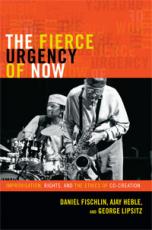 |
||
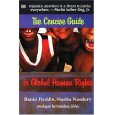 |
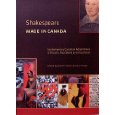 |
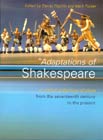 |
 |
 |
 |
 |
 |
 |
 |
 |
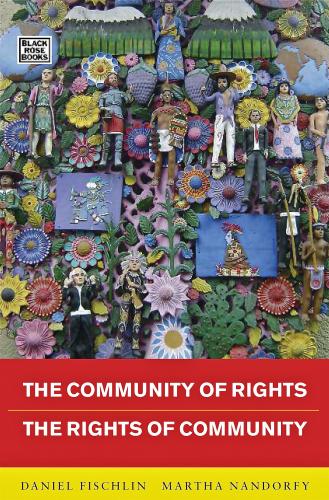 |